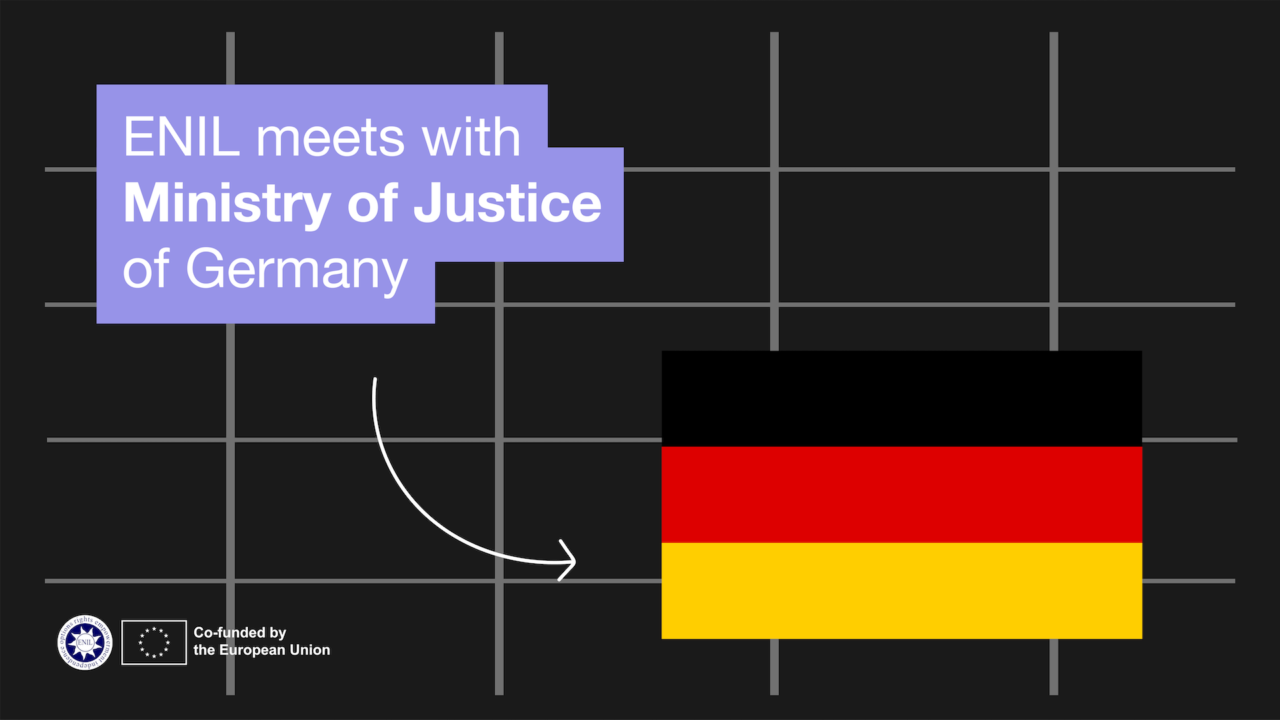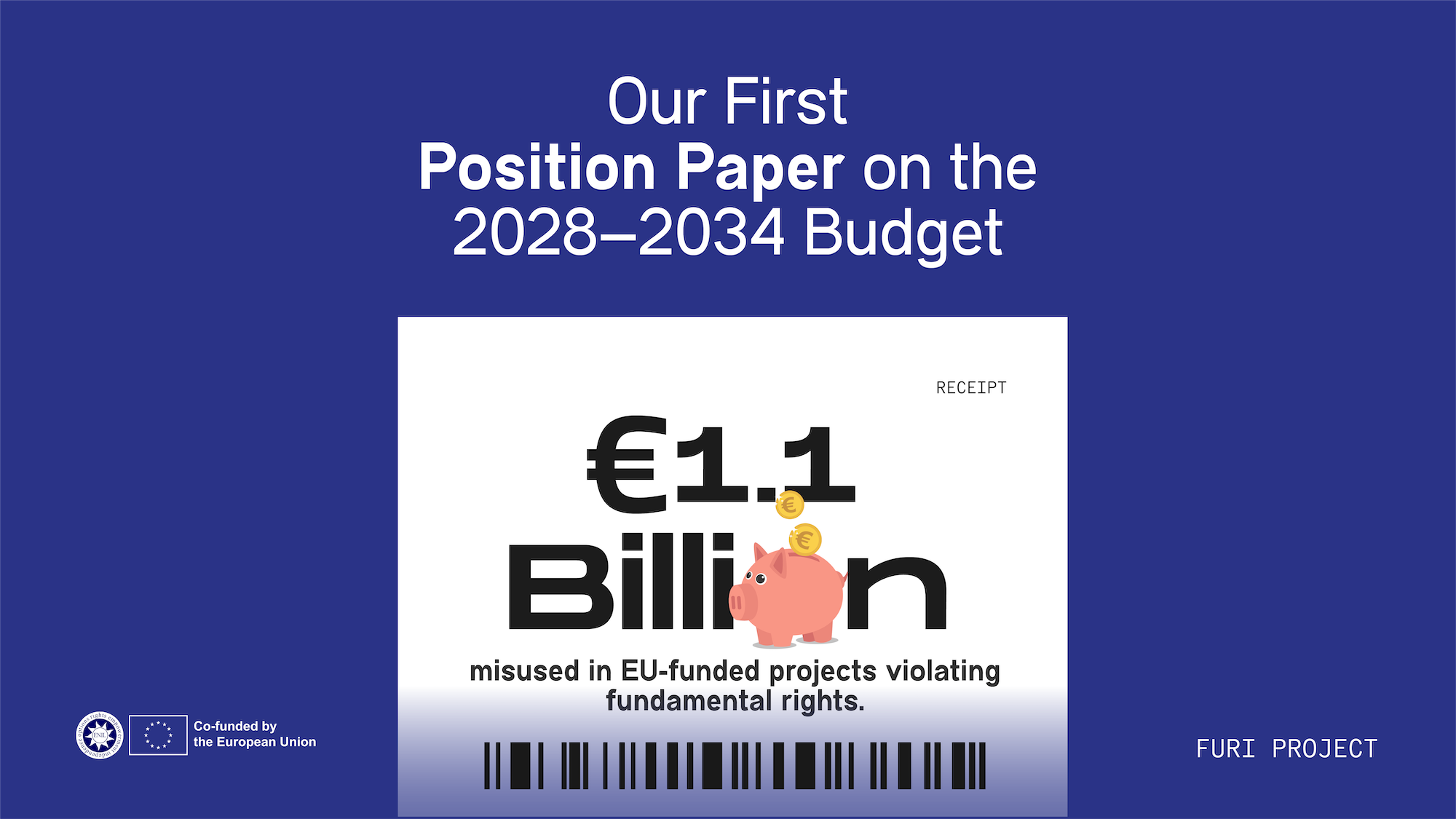On Thursday the 15th of August ENIL Policy Coordinator Florian Sanden and European Disability Forum board member Kristjian Grdjan met with a delegation from the German Ministry of Justice and the Ministry of Social Affairs. The objective of the meeting was to discuss the EU regulation on the protection of vulnerable adults in cross-border situations.
Proposed by the European Commission in September 2023, said regulation aims to establish procedures for the swift recognition of “measures” designed “to protect” vulnerable adults, for example disabled people with intellectual or psycho-social impairments. Such measures can encompass decisions about the person´s property, guardianship regimes or placements in institutions.
ENIL and our German member, Interest Representation Self-determined Living, had invited the Ministry of Justice to a meeting to ask for either substantial changes to key articles of the draft regulation or for its complete cancelation.
The ENIL Policy Coordinator opened the meeting by outlining our objections to the proposed legislation. ENIL, EDF, the UN special rapporteur on the rights of persons with disabilities, the Independent Expert on the enjoyment of all human rights by older persons and legal scholars had found the draft regulation to be in breach of the United Nations of Persons with Disabilities.1 The proposed legislation followed an outdated deprivation of legal capacity approach. It had been proven that supported-decision making is effective in allowing disabled people to take their own decisions and thus is ensuring their self-determination.
Florian quoted some of the most problematic articles of the regulation. According to Article 1, (a) on the subject matter, the regulation had the objective “to lay down rules which determine the Member States whose authorities have jurisdiction to take measures to the protection of the person or property of the adult”. Article 2 on the scope stated that the regulation is to apply “to the protection in cross-border situations of adults who, by reason of an impairment or insufficiency of their personal faculties, are not in a position to protect their interests”. The measures authorities will have a their disposal included the determination of incapacity of an adult, imposing protective regimes like guardianship or “the placement of the adult in an establishment”.
The regulation also contains article 45, , which would oblige EU member states to introduce registers recording information on all “protection measures” taken within that country. Such registers would gather the identities of every disabled person and the details of the steps taken to deprive them of their legal capacity in one database. These databases would be available to other EU governments on demand.
The proposed regulation follows the 2000 Convention on the International Protection of Adults of the Hague Conference on Private International Law (HCCH Convention) which favours a strong deprivation of legal capacity approach. The outdated HCCH Convention calls into question the articles 5, 12, 14 and 19 of the UNCRPD which was adopted in 2006. According to, article 12 of the UN CRPD all persons with disabilities posses equal legal capactiy and member states are obliged to replace all forms of deprivation of legal capacity with forms of supported decision-makin. Articles 5 grants disabled people rights on a level equal to others, article 14 protects against deprivations of liberty and article 19 obliges state parties to ensure disabled people can live independently and are included in the community.
Articles 45, 46 and 47 on the introduction of registers calls into question article 22 of the UN CRPD on the respect for privacy. It states that “no person with disabilities … shall be subjected to arbitrary or unlawful interference with his or her privacy”. Furthermore, “State parties shall protect the privacy or personal, health and rehabilitation information”. Article 8(1) of the Charter of Fundamental Rights of the EU and Article 16(1) of the Treaty on the Functioning of the European Union give every EU citizen the right to the protection of personal data concerning him or her”.
The ministerial delegation expressed sympathy for the rejection of the terminology used in the draft regulation. The term “guardianship” was no longer needed. It also explained that the proposed legislation will lay down rules for the reciprocal recognition of “protection regimes” with a similar legal design. Countries like Germany who had reduced the possibilities to restrict someone´s legal capacity, and thus adopted more advanced laws, would not be affected. The officials added that it might be possible to change some of the recitals of the Commission draft regulation to ensure they reflected advances in supported decision making. Changed the core articles would not be possible.
The representatives of the Ministry of Justice expressed a strong opposition to articles 45, 46 and 47. Germany had the objective to have those articles removed and was looking for partners in this endeavour.
The ENIL Policy Coordinator emphasised that ENIL shared this opposition and would support efforts to change this part of the draft regulation.
To improve its impact on policy outcomes, ENIL has the long-term objective to improve the cooperation with national governments. The build lasting working relationships it is necessary to increase joint outreach activities together with national members and to request regulation meetings with national administrations. Given the time consuming nature of this approach it is not possible to work on strengthening relationships with all governments simultaneously. We have to set priorities and approach administrations one after another.



